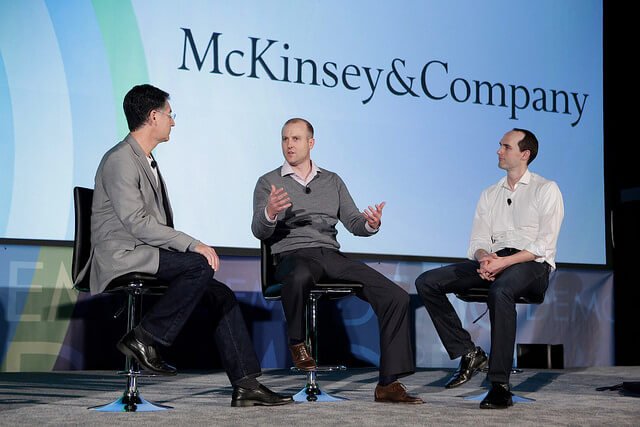According to a new report, elaborated by consulting agency McKinsey, large scale usage of the blockchain will require capital market participants to collaborate on solving the problems of further technology adoption.
The blockchain technology is set to transform the financial industry, says the new research conducted by the London-based management consulting company McKinsey. Still, the agency pointed out that in order to drive its further adoption, capital market players need to work together in one direction.
Called “Beyond the Hype: Blockchains in Capital Markets”, the study admits the blockchain holds enormous potential and could bring its benefits to various financial institutions, including banks, exchanges, clearing houses and brokers.
However, McKinsey added the technology is unlikely to reach wide adoption in the near future and will likely be applied in specific areas. Meantime, such hurdles as the digitization of assets, computing power and asset disposition, could slow down the development of its use cases.
“Banks will also face challenges related to market, legal and operational protocols, issues concerning adoption and route to market, and interoperability, as well as internal hurdles related to expense pressures, technology architecture design and cultural resistance,” McKinsey stated.
According to the report, the development of blockchain will involve four phases. At first, the distributed ledger technology will be adopted across a financial enterprise’s legal entities. Then blokchain will be used by a number of banks to change their manual processes, what will be followed by a conversion of inter-dealer settlements. Finally, it will achieve large-scale adoption by traders in public markets.
In addition, McKinsey stated the technology could help banks to facilitate digital settlement, thus making easier the whole payment process. A few months ago, chief economist at the Bank of England, Andrew Haldane, said the government could possibly issue the national currency in a digital form.
Earlier this month, Tim Swanson, director for market research at R3CEV, compared blockchain with gluten, saying everyone is discussing it but no one exactly knows what it is.
Swanson underlined the necessity to back the technology and develop its possible applications. “People have to deliver something within the next 12 to 18 months or they will go back to their existing technology vendors,” he said.
R3CEV has earlier teamed up with some of the world’s leading banks, including J.P. Morgan, HSBC, Citi, Barclays, UBS and Bank of America, to explore the possible use cases of the technology.
A few days ago, online retailer Overstock got an approval from the Securities and Exchange Commission to issue blockchain-based stock. The company is now developing an initiative called Medici, under which it plans to issue the world’s first cryptosecurity which will not require permission of regulatory authorities.
Over the last year, some of the most prominent figures on Wall Street have turned to fintech industry. Former JPMorgan’s executive, Blythe Masters, and ex-CEO of Citigroup, Vikram Pandit, are among those few former bankers who have recently embarked on blockchain projects.
